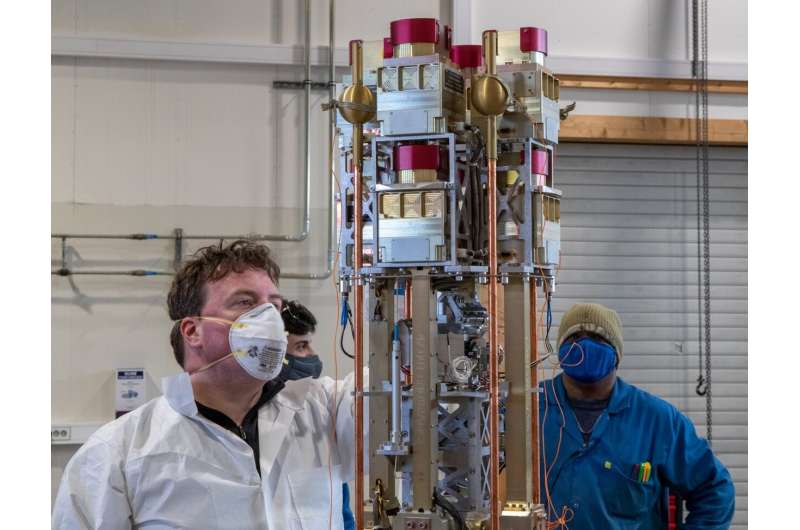NASA rocket to measure Earth's life-supporting secret: A weak electric field

Why does Earth support life, while Venus and Mars—and for all we know, any other planet in the universe—do not?
"It's one of the most fundamental questions in all of science: Why are we here? And it's what Endurance is after," said Glyn Collinson, a space scientist at NASA's Goddard Space Flight Center in Greenbelt, Maryland, and principal investigator for NASA's Endurance mission.
The Endurance mission will attempt to measure Earth's global electric potential, or how much Earth's electric field "tugs" at electrically charged particles in our air. This electric potential is expected to be very weak, making it difficult to measure—and one reason Earth can support life. Endurance's launch window from the small town of Ny-Ålesund in Svalbard, Norway, opens on May 9.
Earth is a watery planet, one of the key reasons it can support life. Yet billions of years ago, you might have said something similar about Venus. Scientists believe Venus was once much wetter than it is today, but for reasons we still don't fully understand, it has since dried out. Figuring out why could pinpoint a key difference from Earth—and reveal a hidden ingredient for a habitable planet.
In 2016, the European Space Agency's Venus Express mission discovered a clue. The spacecraft detected a 10-volt electric potential surrounding the planet, meaning that positively charged particles would be pulled away from its surface. Like a planet-wide vacuum cleaner, this electric potential could siphon away ingredients of water, like the positively charged oxygen that gets split from its hydrogen atoms by intense sunlight. Over time, this electric potential may have played a role in draining Venus' water away to space.
These findings from Venus, however, raised questions about Earth. Venus' electric potential is created by its ionosphere—the electrically charged outer layer of its atmosphere. But Earth has an ionosphere as well. So does Earth have a similar electric potential, and if so, why is our water still around?
"We think one of the reasons Earth may be habitable is because we have this very weak electrical potential," Collinson said. The Endurance team estimates a strength of about 0.3 volts, some 25 times weaker than on Venus and so weak it has foiled all previous attempts at measurement. "It's not even as strong as a watch battery—but it should be there," Collinson added.
With his team and rocket experiment, Collinson is traveling to the northernmost launch range in the world and located in Svalbard, a Norwegian archipelago in the Arctic Ocean. There his team will launch their experiment through Earth's magnetic north pole.
"We had to invent a brand-new technology to do this on Earth, using the technique we pioneered at Venus," Collinson said.
Once airborne, the Endurance mission will measure electrons escaping from Earth's atmosphere—part of a gradual process of atmospheric escape that's been happening for billions of years. These electrons escape Earth at a specific, predictable speed, but they should be slowed ever so slightly by Earth's global electric potential. Collinson's instruments will attempt to measure that subtle slowing effect to find out how strong it is.
If all goes as planned, it will be the first measurements of Earth's global electric potential.
"The reward, if we're successful, is fantastic," Collinson said. "Because we'll measure this fundamental property of the Earth, which is directly related to understanding why we're here."
Provided by NASA's Goddard Space Flight Center





















